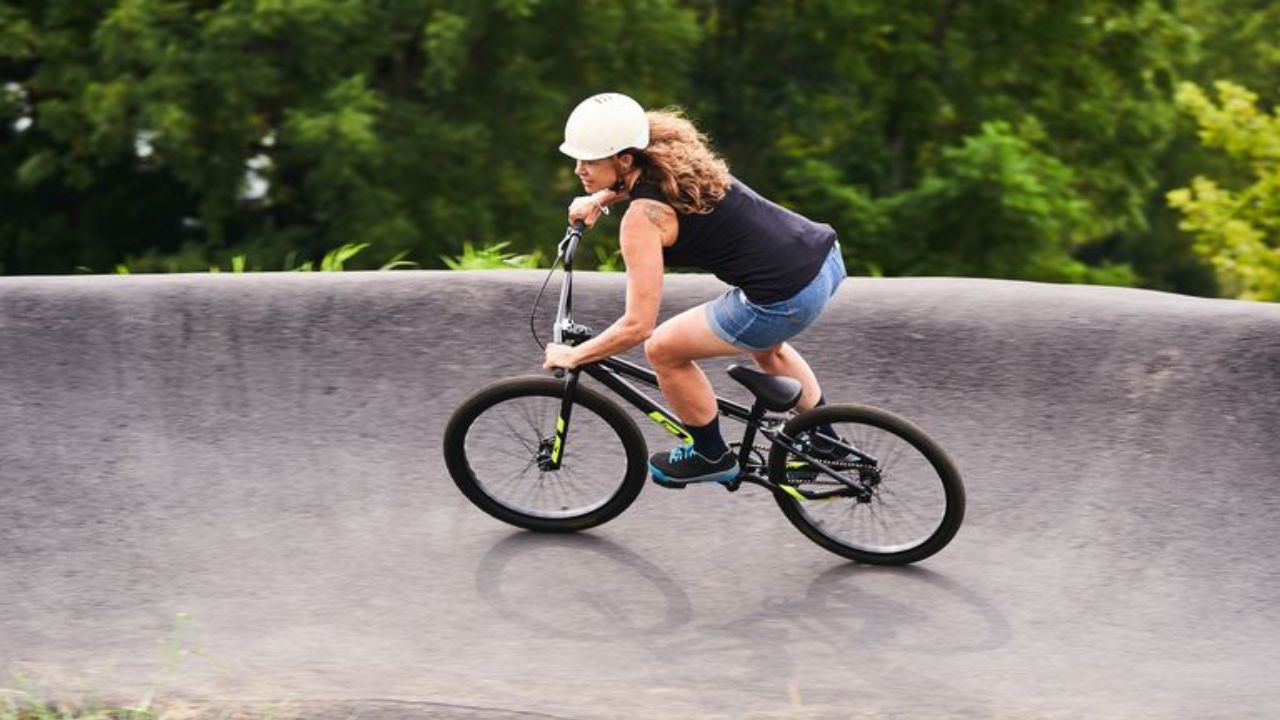
Things I Wish I Knew About Menopause When I Was Younger
Jan 09, 2023What I would — and wouldn’t have — done differently if I knew what I know now.
By Selene Yeager
“What would you do differently if you knew what you know now?” As the host of Hit Play Not Pause and Content Manager for Feisty Menopause, it’s a question I’m asked frequently when I’m interviewed on other podcasts or even just by women out in the wild.
The answer always surprises people: not a whole lot. Knowing myself as I do — and I know myself very well — I think I would have done pretty much what I did, how I did it. But I do wish I had the education I do now because it certainly would’ve made the journey through the transition a whole lot smoother. And I would have made a few key adjustments sooner along the way.
For some background. I didn’t start mountain bike stage racing on a semi-professional level until I turned 40. Menopause was the last thing on my mind through most of my 40s. When I reached my mid to late 40s, training and racing were still going well. But sleep and anxiety started unraveling. I’d wake up at 2:30 or 3 a.m. with rivulets of sweat flowing down the channel of my spine, my mind racing with panicky, the sky is falling thoughts. As I counted back from 50, taking deep, even breaths and repeating, “I’m okay, it’s okay,” I certainly became concerned about my mental health.
It would have given me some peace of mind to know what I was experiencing was a product of my ovaries cuing up their swan song. As it was, I started using CBD and practicing mindfulness, and the anxiety improved, if the night sweats persisted for a while. Had I known then what I learned when I started writing Next Level with Dr. Stacy Sims a few years later, I would have started using adaptogens like ashwagandha, which helped with stress, sleep, and performance earlier.
Here's what else I wish I’d known.
I needed to lift heavier
I knew that body composition generally changes during menopause and that our body starts storing more fat in our midsection. I did not realize how much of a slippery slope the menopause transition was for muscle loss…until mine seemingly vanished overnight. A 2021 study actually described the menopause transition as a “vulnerable period for the loss of muscle mass” after the researchers found that women could lose 10 percent of their appendicular (i.e., arms and legs) muscle mass between early and late perimenopause.
As a naturally muscular woman, I rarely lifted weights. When my muscles started going MIA as I neared my 50th birthday, I took the advice I give constantly now and started a program that included regular bouts of heavy lifting. It made a world of difference in my strength, power, and frankly my mood. Now at 53, I don’t have the muscles I did at 43 (or even 45 or 46), but I’m in a good place. Had I known what I know now, I would’ve gone heavier 10 years earlier.
That metabolic health can go haywire
I knew women’s heart disease risk rose after menopause, but honestly, as an athlete I allowed myself to be blissfully ignorant…until I hit late perimenopause myself. It was jarring to see my LDL cholesterol skyrocket into the red on my InsideTracker graph over the transition. I took their recommendations and worked with my medical team to ramp up my fiber even higher and started using berberine. My LDL dropped 35 points in a matter of months. If I knew earlier what I know now, I would have started aiming for 30 grams of fiber much earlier on. And to be clear, I’m very plant-forward in my diet and always assumed I got that much fiber. Like most women, I didn’t. So, it’s worthwhile tracking for a few days to see what you’re getting.
The invisibility would be temporary, and necessary
One of the things that took me by surprise and freaked me out was this strong desire to disappear, to become invisible. I’ve always been pretty bold and outgoing, and this desire to hide away deep in the menopause transition was unnerving. (To be clear, this is different from the sense of being invisible in a culture that prioritizes youth. That’s a problem that I think is slowly improving. This is internal, rather than external.) Now that I’m on the “other side,” I feel like that was a necessary “cocooning” of sorts as I was going through a transformation from premenopausal to postmenopausal and deciding who I wanted to be for the next chapter of my life. It was actually a powerful time of introspection. I feel stronger, more confident, and once again bolder for having gone through it. I might have welcomed the sensation a bit more if I knew what I know now.
That symptoms should be taken seriously
This is a biggie, and one I just learned myself over the past year. Research often refers to menopausal symptoms as “bothersome.” I would like to see that stop. Now. It diminishes what for some women is a complete disruption of life as they knew it. Severe symptoms have also been connected to serious health issues. Research shows that severe hot flashes and night sweats are linked to increased risk for cardiovascular disease, white matter hyperintensities (lesions in the white matter of the brain — early markers of later risk for cognitive decline, dementia, and stroke), depression, and memory issues (especially when they disrupt sleep). They’ve also been linked to weight gain. I didn’t have severe symptoms personally. But if I had, I would not have known this. And that’s a problem. Women deserve to know the facts and to receive the care they require to assuage their symptoms and hopefully avoid these negative health outcomes.
That it would be positively transformative
For all its ups and downs, menopause has been far more positively transformative for me than I would have ever expected in my younger years. I’m calmer. I’m happier. I have a higher purpose. I give far less f*cks. I feel like myself with less angst. I’m not quite as strong and fast over 100 miles as I used to be, but I can still put in big days and feel great, and I’m just more chill about it overall because my perspective is deeper. I’m happy for the years I had premenopausal and I’m excited to see what life brings post-menopause.

Obviously, this is all speaking from my very personal menopause transition, which is mine and mine alone. Though there are common threads, we each have our own menopause tapestry. Some women experience rage, depression, brain fog, searing hot flashes, and have their lives turned upside down. Others move through the transition without much disruption. Some women benefit from hormone therapy. Some feel fine without it, don’t care for it, or can’t use it. What’s most important is that we have the greatest understanding possible of this time of life, not to dread or fear it, but so we can find our support system and psychologically and physically prepare for what may come our way and take care of ourselves through it. It’s through this knowledge and understanding and support system that we can fully embrace the next chapters in our lives.
Get Feisty 40+ in Your Inbox
We hate SPAM. We will never sell your information, for any reason or send you emails that suck!


